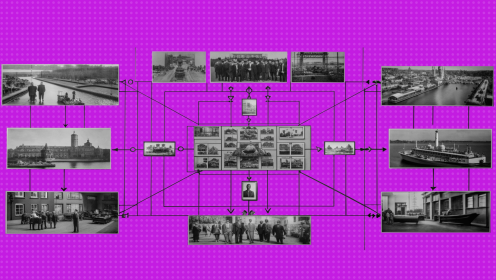When you start managing a team and projects, a lot of tasks immediately fall down and the area of responsibility expands. More expectations — more nerves. Not everyone is ready for this, and understanding what to do comes only with experience.
If you are a novice manager, before you understand how everything works, you will make a lot of mistakes. Don't be scared, everyone makes mistakes at first, but it's better to start from strangers in order to make your own less.
Total control of employees
The manager has a lot of responsibility, but sometimes the desire to control everything develops into micromanagement — instead of working together and listening to the team, the micromanager controls every step and perceives employees as "hands" that translate his ideas into reality.
Over time, employees lose interest — they do nothing but follow orders and report on the results almost daily. As a result, they burn out, the workflow slows down, and the results get worse.
Distancing from the team
Here you have a team, about fifteen people. If you have oratorical skills and charisma, you will surely find contact with them. If not, you will most likely get confused and lock yourself in the office, occasionally going out to pick up food from the courier, and you will communicate with the team in a telegram chat. I can understand — even I, a hyper-forgiving person, would get nervous and withdraw into myself, and let the team somehow settle down to me.
Because of distancing from the team, relationships in the team suffer. And you also run the risk of becoming an outcast leader - the one at the sight of whom everyone falls silent and resumes the conversation when he leaves.
Lack of transparency in business
Often managers do not understand why they should share this or that information with employees: failures, important decisions, news about new customers, sales, etc. It seems that employees have clear responsibilities, and they do not necessarily need to be involved in management processes.
But the opacity of the business only reduces the loyalty and interest of employees to work. If you want to unite the team, increase productivity and initiative, you need to make the business more transparent.
Informal communication with employees
Many aspiring managers mistakenly believe that in order to be well thought of, you need to become "your own in the board." Informal communication at work is not bad — employees are more loyal when they know that they are on the same wavelength with the boss. But when, in pursuit of informality, you violate other people's personal boundaries (you make rude jokes, ask personal questions, etc.), you risk the loyalty of the team.
There are no specific goals and deadlines
When you have a high workload, it is difficult to control each employee. It seems that the team already understands what you expect from it and what needs to be achieved. But vague goals and lack of deadlines give an unclear result — employees work in their own mode, and not in the way they need to effectively achieve results.
Lack of feedback
Managers do not share feedback with employees for two reasons:
- They are afraid to criticize. Feedback is not only praise, but also criticism of the work of employees. Novice managers worry that they will spoil relations with the team in this way.
Yes, criticism can spoil a relationship, but an adequate employee will listen to it and draw conclusions that optimize the work, and will not be offended by you.
- They don't see the point in feedback. An employee messes up — you will reprimand. And why praise a person just for doing his job?
Feedback helps to build a dialogue, and not to spoil the relationship (if, of course, the criticism is constructive, and not just a stream of aggression). Praise will strengthen team spirit, and criticism will improve team performance.
Disregard for the opinion of employees
Do not neglect the opinion of employees, even if it seems wrong. Listen to someone else's position, discuss it and reject it in a reasoned manner, if they did not fit. An opinion from the outside will not hurt, and the team will feel like an important part of the process — which means that loyalty and interest in work are higher, and the chance of burnout is lower.
Ignoring team conflicts
Conflicts happen, even if this is an unecological way to resolve contradictions, but, unfortunately, it is not always possible to settle everything peacefully.
If it happened that the employees quarreled, to give up on it is the last thing. If you want the team to work productively, you will have to resolve other people's conflicts and resolve misunderstandings.


















